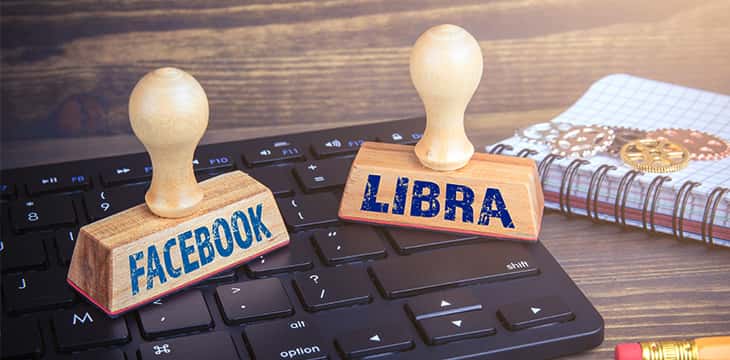|
Getting your Trinity Audio player ready...
|
Facebook founder Mark Zuckerberg made a trip to Washington, D.C., on Wednesday in an attempt to show U.S. lawmakers that the Libra stablecoin is a legitimate, viable financial option that could help people around the world. In a hearing with members of the House Financial Services Committee, Zuckerberg provided bit after bit of positive accolades for the project in an attempt to win them over, but things ultimately didn’t go as well as he had planned. After hours of grueling back-and-forth, lawmakers were no closer to being convinced as they were the last time he made a Capitol Hill appearance on the subject.
The hearing lasted about four hours, with Zuckerberg receiving questions from all sides. Some were more docile, while others were direct attacks at Zuckerberg and his past at the helm of the giant social media company. California Rep. Brad Sherman was one of those who took a swipe at him, stating at one point, “Let’s be clear. You are going to make powerful burglary tools and let your business partners commit the burglary. You are going to, with all the power of Facebook, try to create a new currency. You call it Libra, but you are the person behind it, and that’s why I call it ‘Zuck Buck.’” Zuckerberg couldn’t even muster a response.
The chair of the committee, Maxine Waters, has been a vocal opponent to Libra, but not necessarily because the project may or may not have merit. The idea of Facebook being able to introduce an economic solution seems to scare her, given Facebook’s past history of not being able to ensure the integrity of its users’ data and the belief that the platform has been able to manipulate data and advertisements to suit its own agenda, or that of the individuals with the deepest pockets. At one point, she expressed her concerns, stating that Facebook needs to clean its house before it decides to embark on any new endeavor, including Libra.
Rep. Nydia Velazquez chimed in, as well, asserting, “Facebook’s internal model was for a long time was ‘Move fast and break things.’ Mr. Zuckerberg, we do not want to break the international monetary system.”
One of the issues with Libra, apart from where it is seen at a financial level, is that it isn’t exactly a decentralized, permissionless payment network—a criteria for the currency to be considered a cryptocurrency. Facebook and the other members of the Libra Association have complete control over how transactions are verified, which means they have autonomy to determine the fate of the entire financial structure. If Libra were to reach the level of success Zuckerberg expects, this could spell disaster for the entire global economy.
As the Founding President of the Bitcoin Association, Jimmy Nguyen, put it in an interview with Market Watch, “There already is a fast, low-cost, frictionless electronic cash system available to be used for global payments. It is Bitcoin’s original design, now back as Bitcoin SV (BSV), which has the massive scaling plan and technical road map to support a global digital payment system. Facebook does not need to build Libra, when it and its partners can simply use BSV to achieve their goals.”
The same sentiment was echoed by BSV entrepreneur Ryan X. Charles of Money Button before the hearing. In a short video that offers a brief history of the real Bitcoin, Charles explained why “it would be better if Facebook actually adopted Bitcoin instead of doing their own”—it’s capable of massive, unlimited scaling and offers everything needed for an economic solution, and it’s regulation-friendly too, which means that Libra could have conceivably already been up and running with nothing more than a requisite filing in a jurisdiction to be able to move forward.
“I hope the people at Facebook recognize that Bitcoin is an economic system first, not a computer science solution. The difference is basically the whole idea of the architecture of Bitcoin is to empower people to create businesses in and around this thing. It’s not about designing everything in from the start and just hoping that it’s perfect, whereas everything explodes in a disaster like Ethereum basically. I don’t mean to offend them but the reality is because it doesn’t scale, they have like a fundamental challenge—there is no such fundamental challenge with Bitcoin,” Charles said.
After seven backed out, there are currently 21 companies that recently signed the Libra Association charter to become founding members of the organization. Part of the guidelines to be a founding member is that the entity has to make a $10-million investment into Libra’s coffers. However, according to the BBC, not a single one has yet to make a deposit. If this is because they’re waiting to see whether or not Libra survives, they are apparently not as supportive of the project as Facebook has tried to indicate. That, again, shows how Zuckerberg and Libra head David Marcus along with Facebook as a whole try to manipulate data for their own benefits.

 02-13-2026
02-13-2026 




